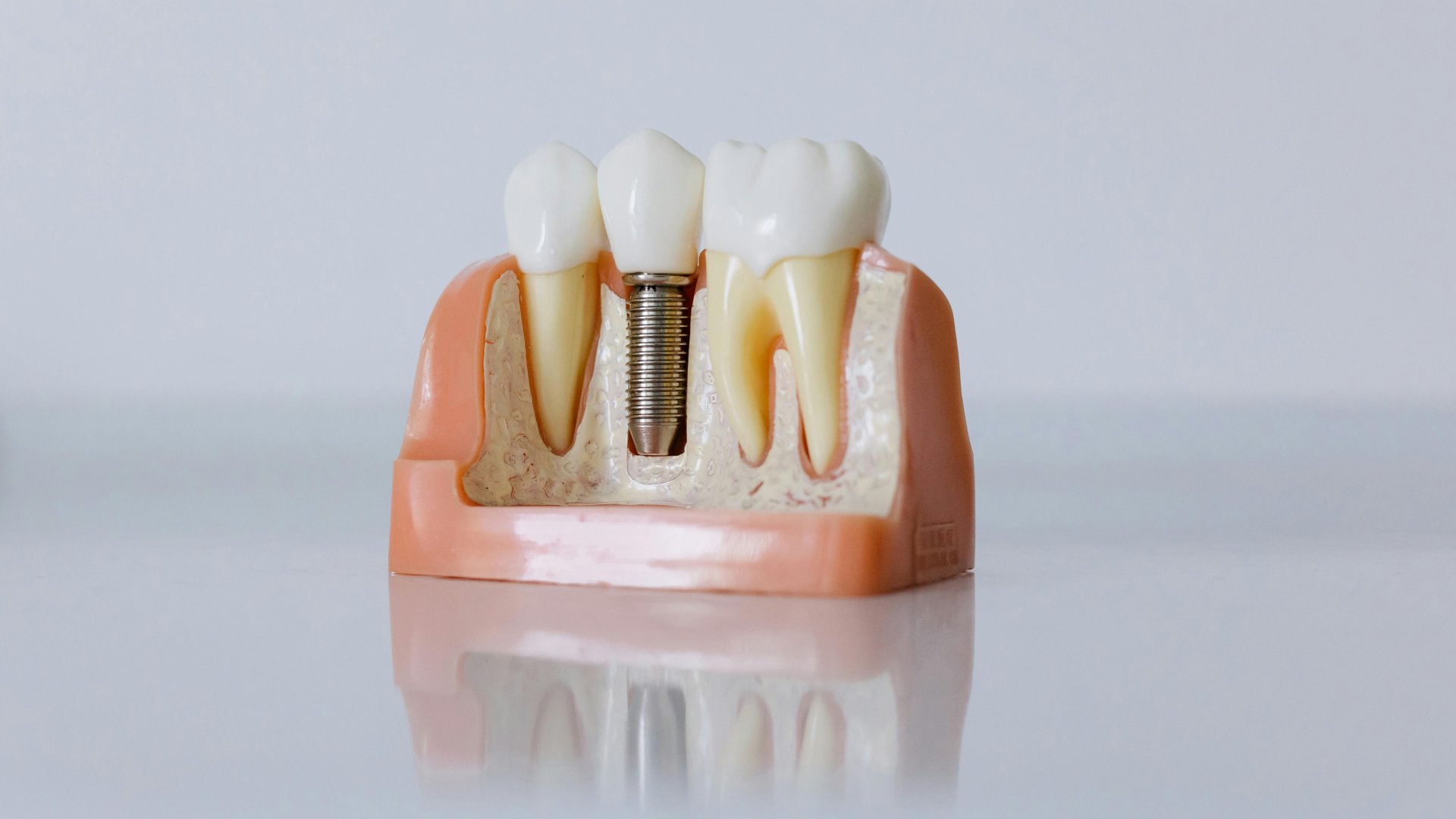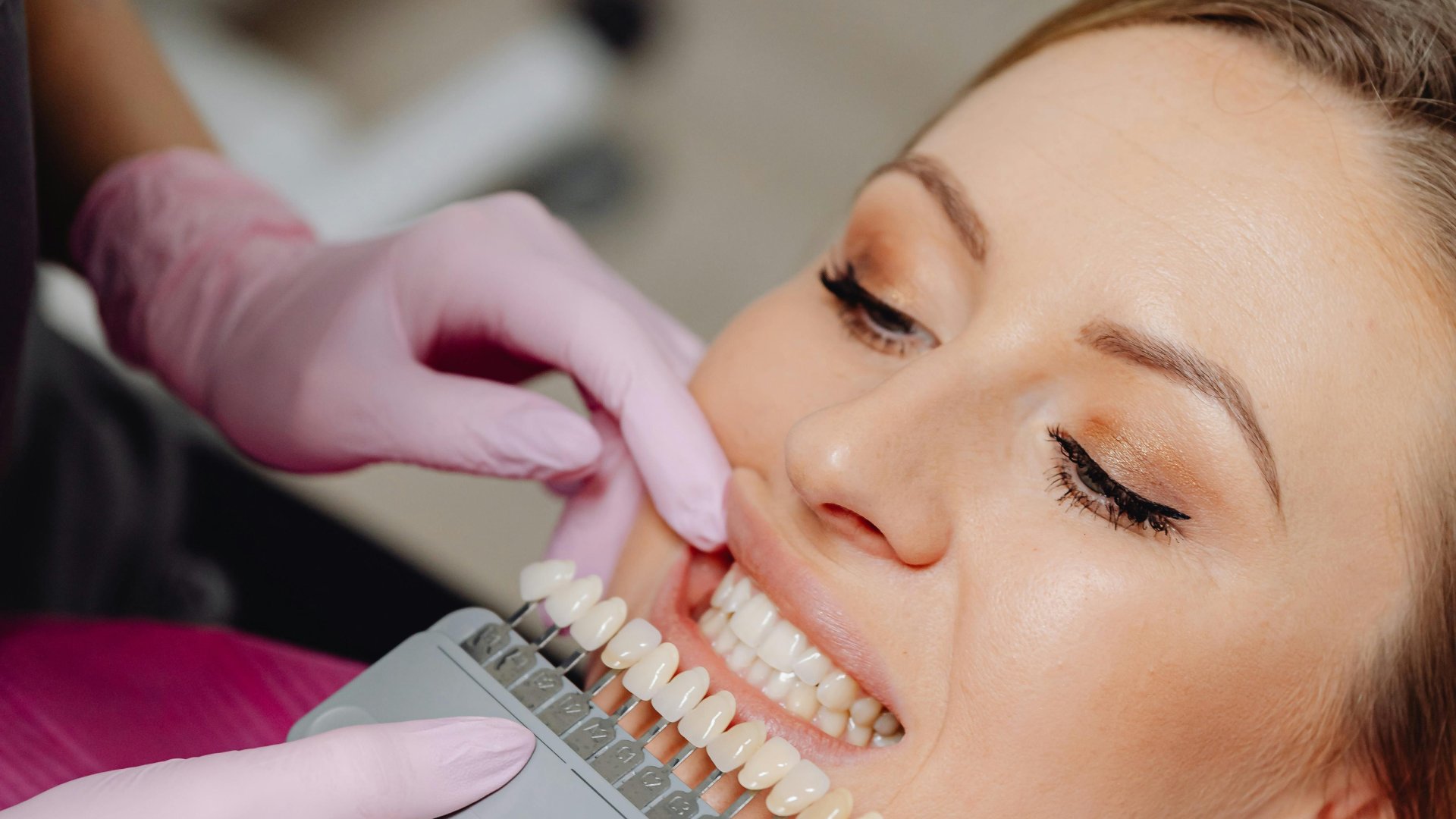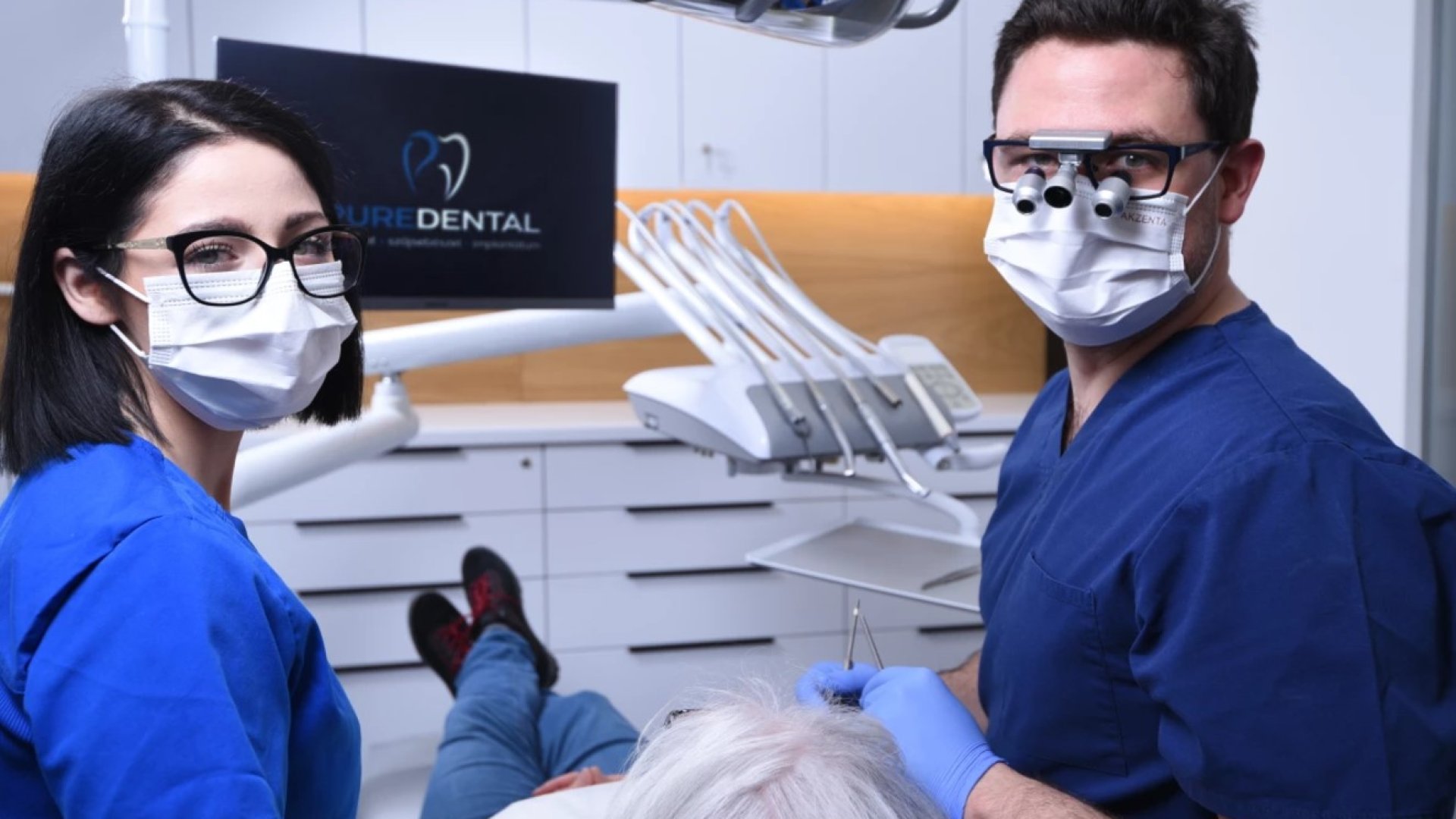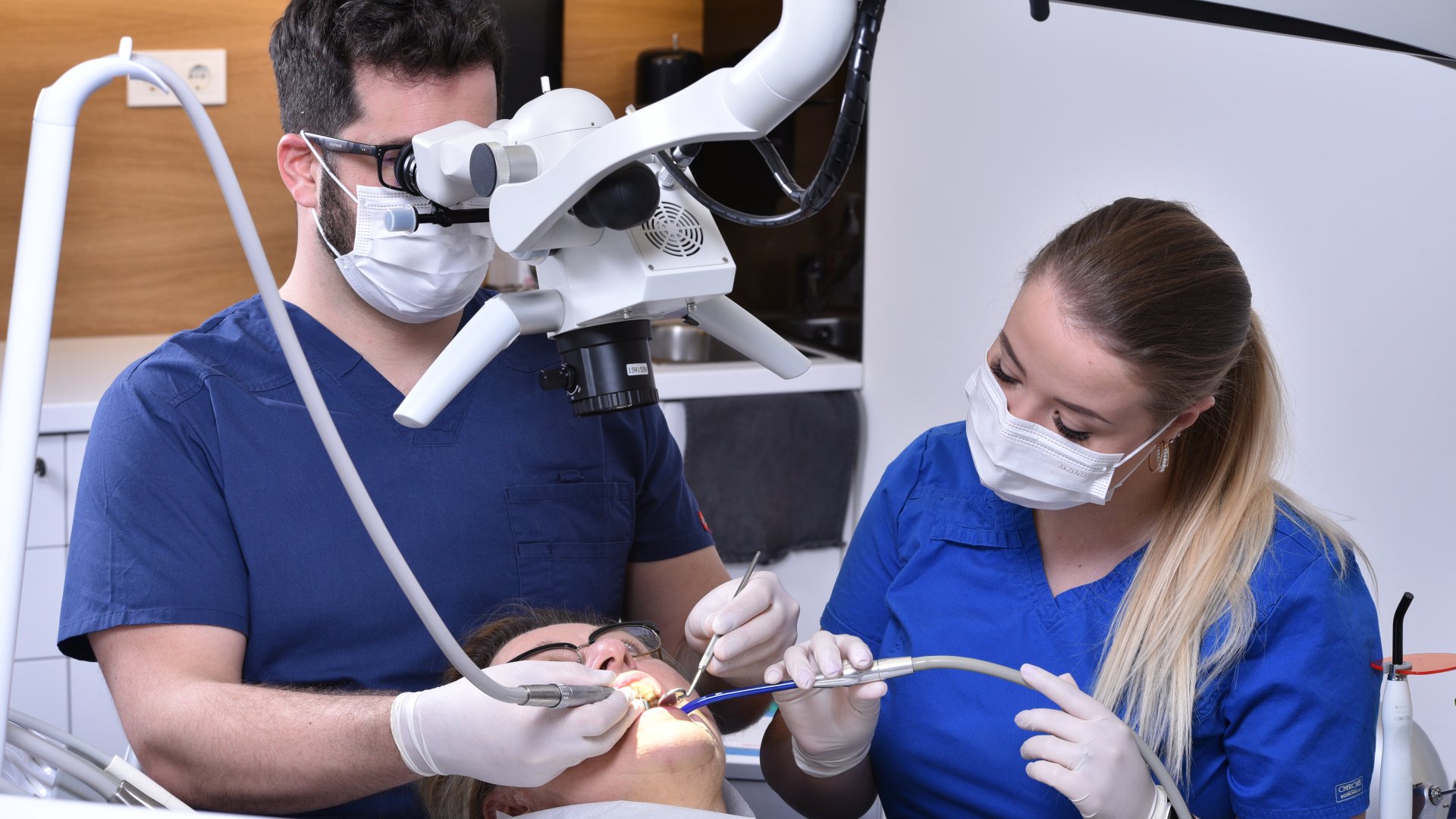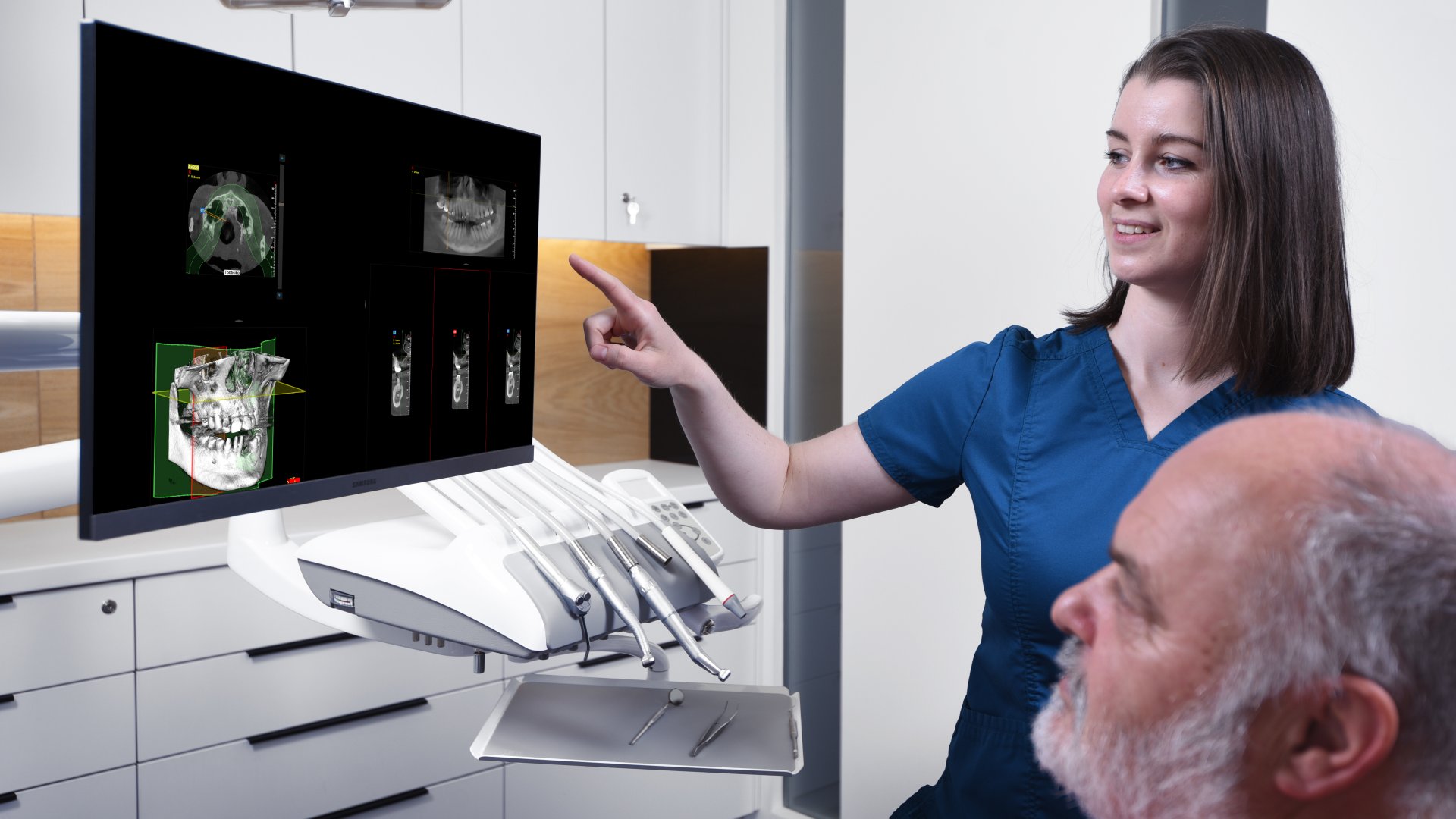Wisdom toothache
Sometimes a wisdom tooth doesn't grow out at all, but when it does, it's a nuisance for most people. Most often, there comes a point when wisdom tooth pain occurs - but what exactly causes it and what can be done about it? Read our expert article below to find out!

Possible causes of wisdom toothache
... wisdom tooth
... now considered an atrophied organ. It used to be necessary to have an eighth tooth to chew food thoroughly. However, with the development of heat treatment (cooking) of food and the rise of civilised society, it was no longer needed - the jawbone became smaller and there was no room for the extra organ. But in many cases it still grows and, because it does not fit, causes severe pain. But even if there is room to grow out, there is still a high chance that the teeth will be crowded together, which greatly accelerates the process of decay.
Wisdom toothache: inflammation
Wisdom tooth pain may occur in partially erupted teeth, which is the most common. Such teeth are partially covered by gums, resulting in the formation of a so-called pocket between the tooth and the soft tissue. Food debris can easily get trapped in the pockets and cannot be cleaned out with home appliances. The body identifies the accumulated food debris as foreign matter and tries to defend itself against it. Inflammation then develops, which can cause very severe wisdom tooth pain.
Wisdom toothache in an impacted tooth
In other cases, when the tooth is not yet partially erupted, i.e. fully impacted, wisdom tooth pain may also occur. This is due to the tooth trying to erupt in the wrong direction, thus pressing on the tooth in front of it, which can cause tension or a strong feeling of pain. The pressure on the tooth in front of it causes initial decay in the early stages, but if the wisdom tooth is removed at this stage, the tooth next to it can still be saved.
Treatment of wisdom toothache
When treating wisdom toothache in acute inflammation, the focus should be on eliminating the inflammation and only then should the removal of the tooth(s) in question be considered. Removal of teeth in cases of inflammation is not recommended because it can cause the inflammation to spread and anaesthetics have a different effect. Therefore, a drug treatment should be tried first.
It is also possible that the wisdom tooth may be pressing on the root of the tooth in front of it when it erupts, in which case it will be the tooth that will be in pain. Because the roots of an eight tooth are often more tangled than those of a normal tooth, in some cases the tooth before the eight tooth is removed to relieve wisdom tooth pain, rather than the one before it. The removal itself is also easier for this tooth, and there will be enough space for the wisdom tooth to grow out properly.
Do you have problems with wisdom tooth pain? Don't suffer, it gets worse every day! Instead, come to our practice, PureDental Dentistry, where you can rely on the expertise of our friendly staff in a friendly environment, guaranteed pain-free!


